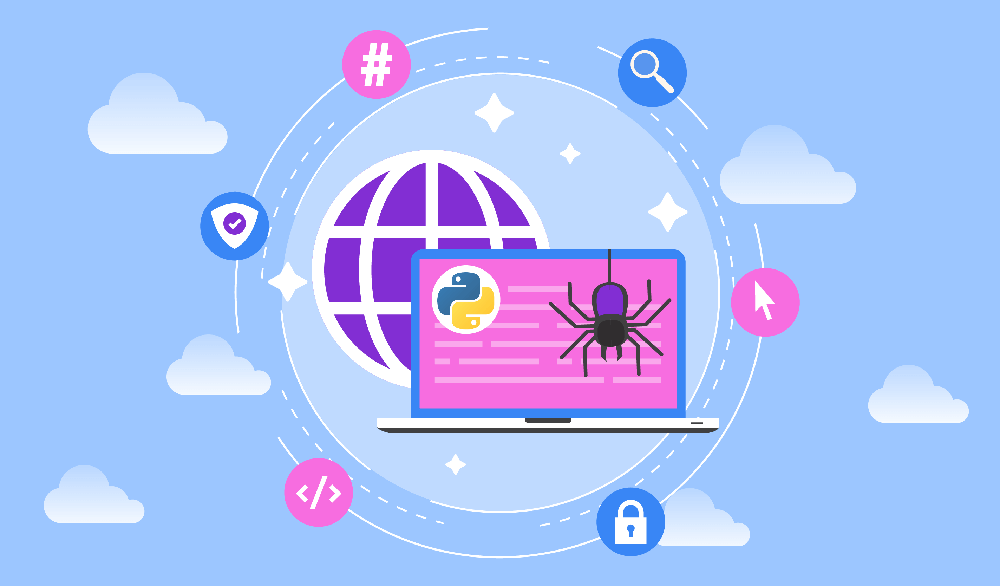In the simplest terms, search engine crawling or indexing is the process that a search engine uses to gather information from the internet so that it can create and maintain its search engine results pages (SERP).
Crawlers or bots travel the web, following links to websites and downloading the pages they find.
What is Search Engine Crawling?
Search engine crawling, also known as web scraping, is the process by which a search engine indexes webpages. The search engine sends out a spider or crawler to visit websites and extract information about the pages and their content.
Also Read: What is Programmatic Mobile Advertising and How does it Work?
This information is used to create an index of websites that can be searched by users. Crawlers may also be used to monitor website changes and keep track of updates.
How Does Web Crawling Work?
Web crawling, also known as web scraping, is a technique used to extract large amounts of data from websites. Crawlers use algorithms to navigate the web and extract the data they need. Most crawlers start by visiting a few well-known websites and then follow links to other websites.
As they crawl, they store the data they find in a database. This process allows them to collect information from thousands of websites in a short amount of time.
Crawlers use a number of algorithms and rules to determine how frequently a page should be re-crawled and how many pages on a site should be indexed.
The first step in crawling is identifying pages to crawl. Crawlers use a variety of methods to identify pages, including link analysis, robots.txt files, sitemaps, and HTML tags.
How Can Search Engine Crawlers be Identified?
One way to identify the search engine crawlers is to look at the user agent string that they pass to the web server when requesting web pages.
This string can provide information about the browser, operating system, and other details about the device or software being used.
A number of websites have published lists of known user agent strings for different search engines and browsers.
User-agent strings are pieces of information that are sent from browsers to web servers. They identify the type of browser being used, as well as other information about the user’s device.
This information is used by web developers to determine how to best serve content to their users. Search engines also use user-agent strings to identify the browsers that they are compatible with.
In this article, we will take a look at a few examples of user-agent strings used by popular search engines.
- Googlebot User Agent
- Bingbot User Agent
- Baidu User Agent
- Yandex User Agent
Crawling images and other non-text files
One of the most important aspects of a website is its images. They are often used to break up text, to add visual interest, and to help convey a message. However, what happens when those images are not accessible to people who are visually impaired?
This is where crawling images and other non-text files come in. By using crawlers, we can make sure that all the files on a website are accessible to everyone, regardless of their ability.
The ranking process: How search engine results are ranked
The ranking process is the algorithm that search engines use to determine the order of websites in their search engine results pages (SERP).
The ranking process takes many factors into account, including the relevance and authority of a website. In order to improve their ranking, websites can improve their content, design, and backlinks.
There are many factors that are considered when ranking websites. The most important of these factors are the keywords that are used in the search query.
The relevancy factor: What makes some pages rank higher than others
There are numerous factors that contribute to how high a web page ranks in search engine results pages (SERP). While the search engines constantly tweak their ranking algorithms, some factors remain more important than others. One of the most important is relevancy.
A web page’s relevancy is determined by how well it matches the search terms used by the person conducting the search. The more relevant a page is to a search, the higher it will rank.
Conclusion
In conclusion, search engine crawling and indexing are important processes that allow users to find the information they are looking for on the web. Crawlers travel across websites, following links and gathering information about each page they visit.
This information is then indexed and stored in a search engine’s database. When someone conducts a search, the engine looks through its database to find the most relevant pages and returns them as results.

